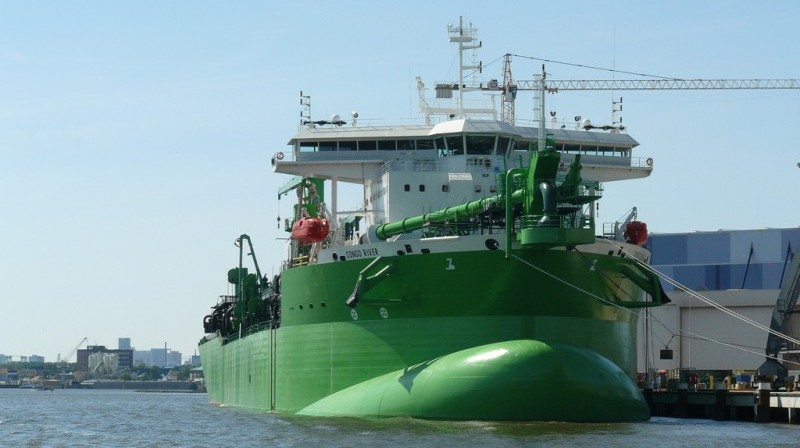The world’s leading emerging economies have registered their concerns over a new shipping climate strategy, under proposals seen by Climate Home.
China, India, Brazil and six other countries say a greenhouse gas emissions cap would be “fundamentally unfit” for the sector.
“As long as world trade is growing, shipping will grow too,” the national representatives said in a document submitted to the UN’s International Maritime Organization (IMO).
“This responsive characteristic of shipping makes it impossible to determine its peak emissions in the same way that a country could do.”
Ahead of an IMO environmental committee meeting next month, they argue the focus should be on rules for gathering fuel consumption data from ships. It is the first part of an agreed “three-step approach” that could ultimately – in five years or more – lead to energy efficiency regulations.
Weekly briefing: Sign up for your essential climate politics update
That does not reflect the urgency of the Paris Agreement on climate change, says a separate submission from a coalition of 11 European, island and African states.
IMO-commissioned analysis shows shipping accounts for 2-3% of global emissions and its carbon footprint will grow 50- 250% by 2050 without intervention.
France, Germany and the next host of UN climate talks Morocco are among those supporting a move to limit shipping pollution raised by the Marshall Islands in 2015.
They want the IMO to define shipping’s “fair share” of the internationally agreed goal to hold global warming “well below” 2C, warning that the target is unattainable without action from the maritime sector.
Under a suggested work plan, this could be adopted in 2018 and refined as further data becomes available.
The emerging economies’ objections are twofold: procedural and substantive. Firstly, they argue “it would be unproductive to have two complex and interrelated negotiations occurring in parallel”. Secondly, they are concerned discussions would lead to an absolute target that could constrain economic growth.
These two blocs have carved out the battle lines, with the US, Norway, Canada, Japan and Turkey suggesting various options in between. Proposals include a greenhouse gas emissions intensity target and five-year review cycle.
Industry groups are embracing the “fair share” language – on the basis that any outcome must not inhibit development. A proposal from Bimco, ICS, Intercargo, Intertanko and WSC says data collection is the priority, but is “only one step towards addressing CO2 emissions from shipping”.
As Climate Home reported last week, ship owners are preparing for a potential carbon levy on bunker fuels. Anxious to avoid market distortions, they want the IMO to take the initiative rather than leave regions to create a patchwork of regulations.
Delay could also store up trouble for later, argues the Clean Shipping Coalition. “One can debate what share of that [2C or 1.5C] carbon budget belongs to shipping, but the amount will be finite,” the NGO submission says.
“To act early is to give the industry as smooth a landing as possible. The later action is taken, and some are suggesting that no new measures are agreed or even discussed for 10 years, the harder it will be for the industry to adjust.”
